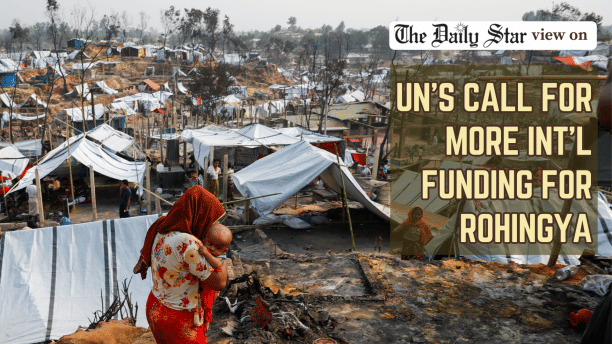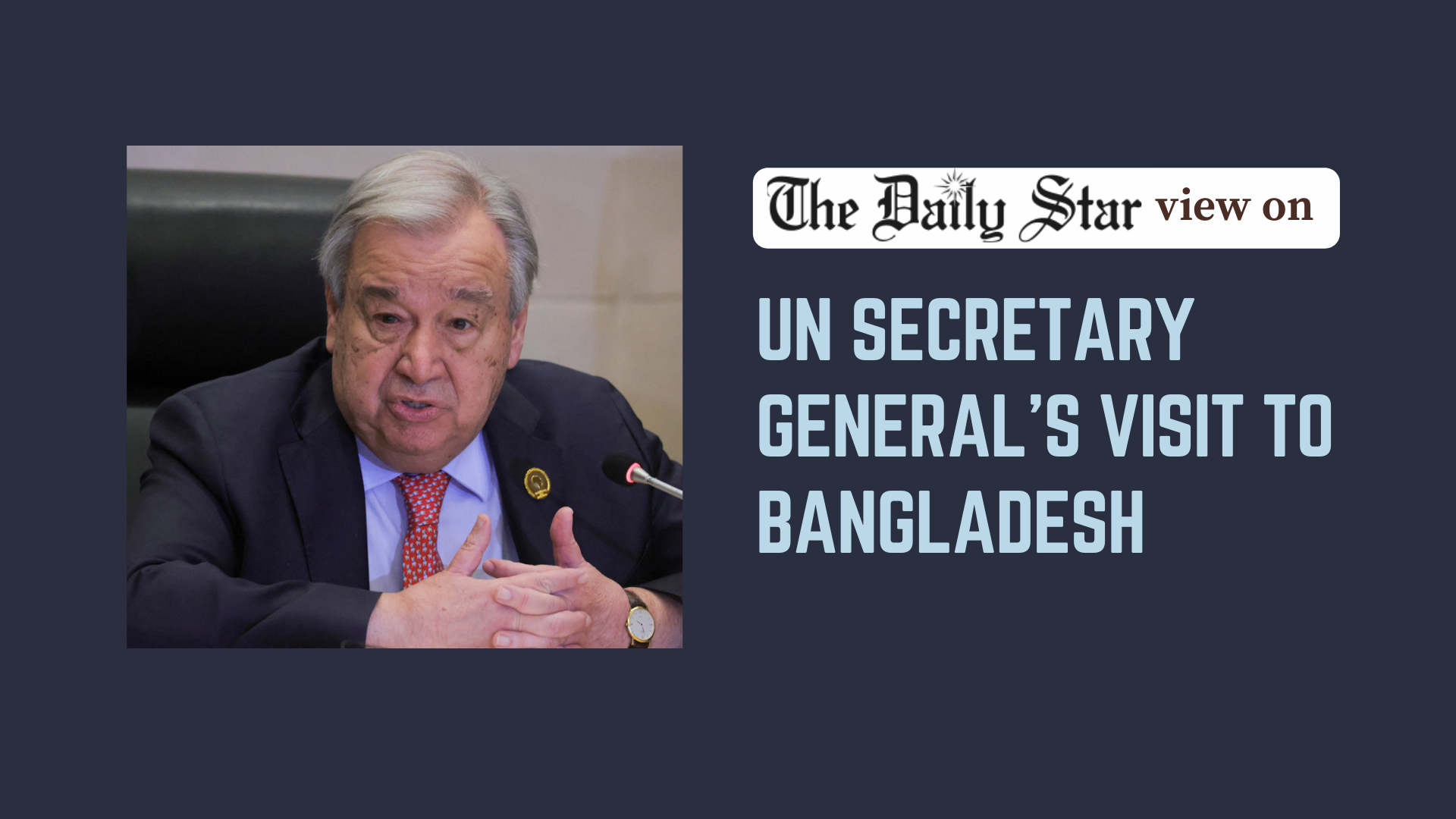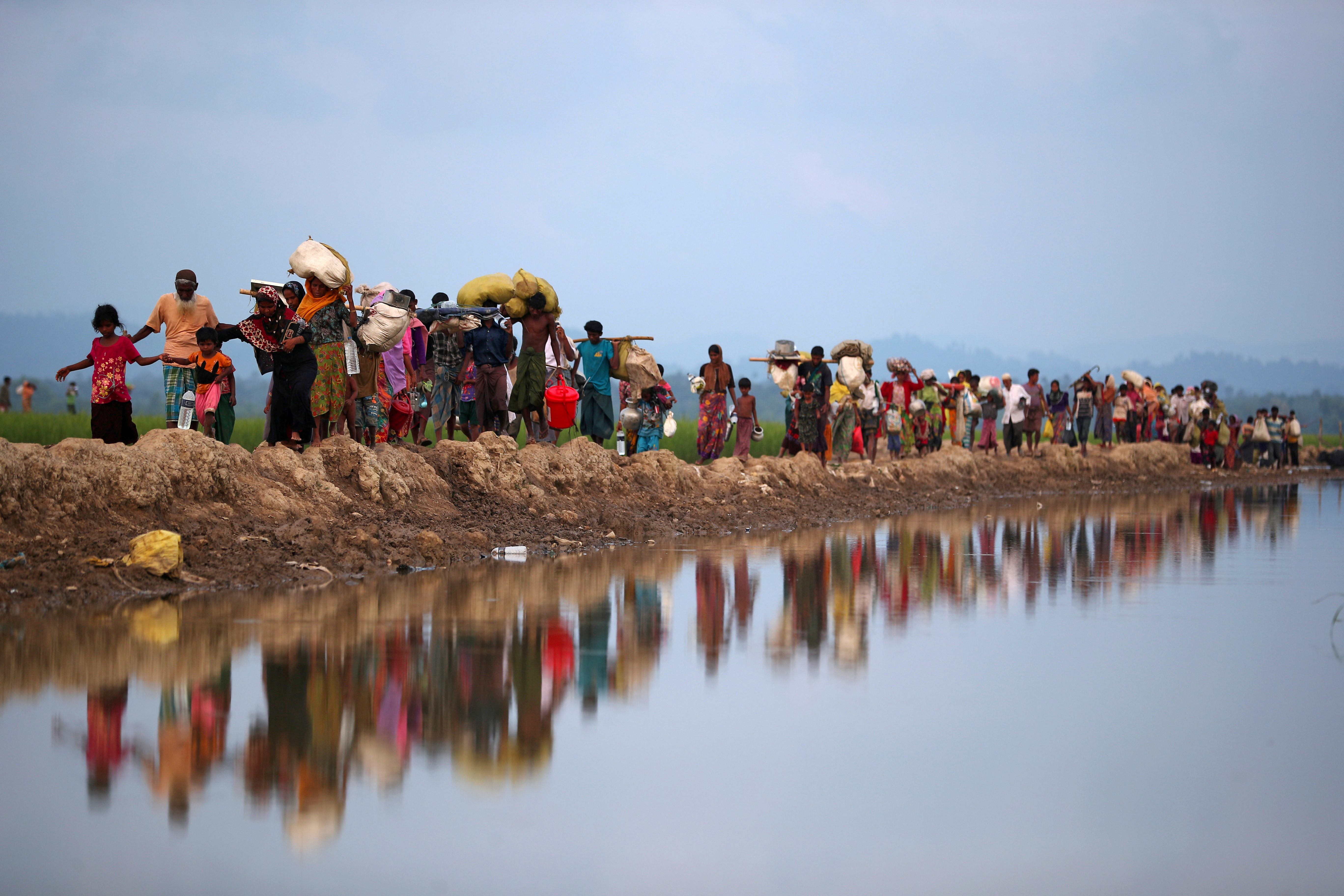World must not forget the Rohingya

We welcome the UN Secretary-General António Guterres' call to the international community to increase funding for the Rohingya living in refugee camps in Bangladesh. Mentioning that the Rohingya are on the verge of a deep humanitarian crisis caused by global aid cuts, the UN chief rightly emphasised the international community's obligation to support them. As the UN chief and Chief Adviser Prof Muhammad Yunus addressed a large gathering of Rohingya refugees at a camp in Cox's Bazar's Ukhiya on Friday and shared iftar with them, he also expressed hope for the safe and dignified return of over one million Rohingya currently stranded in Bangladesh.
The Rohingya refugees living in camps face growing uncertainty as their food rations are being cut due to global funding shortages. The World Food Programme is reportedly reducing its monthly rations from $12.5 to $6 per person starting in April 2025. In 2024, only $554 million—65 percent of the required funds—was provided for these over one million refugees. With the announced cuts in financial assistance, the situation will become even more dire this year. A previous round of ration cuts in 2023, which reduced food rations to $8 per month, led to a sharp increase in hunger and malnutrition. Hence, if monthly food rations are further reduced to $6—approximately Tk 24 per day—it could push the Rohingya refugees to the brink of starvation and even death. Reportedly, nearly 50 percent of the total humanitarian assistance for the Rohingya comes from the US government. Therefore, cuts in US funding will have disastrous consequences for them.
Bangladesh has generously shared its land, forests, limited water, and scarce resources with the refugees. However, it largely depends on humanitarian aid to meet their basic needs, including food, education, and healthcare. If these fundamental rights for the Rohingya population cannot be guaranteed due to funding shortages, tensions within the camps are likely to escalate, potentially leading to increased violence, criminal activity, drug trafficking, and other issues. Therefore, we hope the UN chief's call to increase funding for the Rohingya will awaken the global conscience.
The Rohingya refugees cannot remain stuck in limbo forever. Bold and decisive global action is needed to secure a sustainable future for them. To ensure this, the UN and the global community must prioritise the Rohingya issue. They must put pressure on Myanmar to create conditions for the voluntary, safe, and sustainable return of the Rohingya. Until that can be ensured, the international community must step forward with financial assistance. Bangladesh, despite facing many challenges, has done everything in its capacity to support the Rohingyas. It's time for the world to do its part.



 For all latest news, follow The Daily Star's Google News channel.
For all latest news, follow The Daily Star's Google News channel. 

Comments